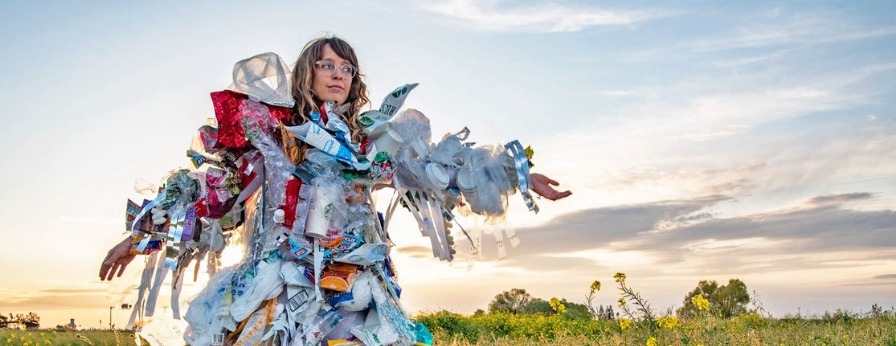By Nicolas Malzacher
A gust of wind whips at my face and heaves me forward, over the ridge of the oncoming wave. The neon sail impatiently tugs at my waist, forcing me to lean back over the white crests of the Aegean. A sly bead of sweat and brine escapes my eyebrow, only to be received unhappily by my iris. I flinch and blink and try to clear my vision, but it’s too late: I miss a particularly insidious wave, lose my balance, and am catapulted over the bow of my fickle vehicle. The cackling of a passing seagull tells me that I cut an ungainly flying figure indeed.
I cough up some salt water and heave myself back onto my board, grappling for the rope to haul up the sunken sail. However, I notice a stowaway that has made itself comfortable on the rope; a blue plastic bag from the local supermarket. I remove the fare dodger and throw it back into the water, only to immediately regret doing so.

Source: provided by author
When driving home later that day, I notice the plastic bottles and empty coke cans accumulating by the road and feel a touch of guilt about spending my time surfing and relaxing rather than trying to remedy these hellenic plastic problems. I remember #trashtag, one of the recent web phenomenons where people post pictures of themselves with packed bags full of waste they just picked up from some place branded by human laziness and ignorance. The smiles on their faces bespeak pride and joy, the sweat beads on their brows are a testament to hard labour rather than a trigger for a surfing bail-out. Some members of the anonymous audience to this webnomenon complain that the participants merely use the challenge for grandstanding – after all, they could’ve just posted pictures of the bags rather than also staging themselves in the process. However, I think that the self-portrayal of the participants is a crucial element of this particular movement, for it causes observers to ask themselves: “Why is it not me smiling on that picture?” It is a trigger for precisely the guilt I feel on my way home. If others can do it in their free time, why can’t I? And I think that, if we want things to change, we need such surges of guilt. No significant change has ever originated from people feeling comfortable in their skin.
Although this specific case of grandstanding is not only unproblematic but, in my opinion, even desirable, it raises the interesting moral question of how much grandstanding a good deed can suffer: Celebrities posing with emaciated children after having funded a school in a remote village in Zimbabwe? Random youtubers handing out cash to homeless people while adulating themselves? People letting their friends know on Twitter about their recent donation to Greenpeace? And even if we deem self-staging to be reprehensible, would we rather the good deed had not been done at all?
I think it’s fascinating how nuanced these examples can get and how complex the parameters are for deciding whether grandstanding is morally acceptable or not. One thing is for certain, though: I’ll never get tired of the strange mixture of pride and shame I feel from seeing people posing with stuffed bags of plastic.
Disclaimer: This text was written between June and July 2019. #trashtag is still going strong, however!

